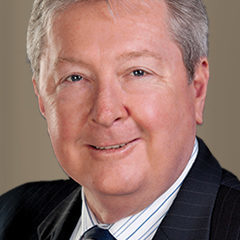
How to increase decisions per hour and reduce the number of mistakes that make such a dent in your profitability
While the surveillance department’s main goal in its support of Table Games is to detect cheats and advantage players, as well as employee theft and fraud, there are other things that Surveillance can do to add profitability. As in any other department or business, there are inefficiencies and waste that once identified and corrected can aid in increasing performance and profitability.
Surveillance is especially suited to assist Table Games in this manner because they are already looking at your games and personnel in detail, and are usually aware of a lot of the information that you want to know. It really is just a question of asking for it.
Let me give you a couple of examples. Getting the hands out, the dice rolling, and the ball spinning is key to generating handle. Are you getting the hands out where you expect them to be? I would suggest probably not. Most pits are not as efficient as we’d like them to be. I can tell you from personal experience that a lot of dealers are way below average in their game speed. Another area where dealers tend to slow down is during the shuffle.
If you’re still hand shuffling, you should be using a ninety-second shuffle, but some dealers can stretch that shuffle to over three minutes! Not your problem, because you have auto shufflers. Think again, a lot of dealers still tend to slow down just exchanging one stack for another. That’s costing you hands per hour and affects your handle.
Don’t know what your overall decisions per hour are right now, but you would like to? Get with your surveillance department and ask them to do a study for you. They may even do it already. Knowing who and what is slowing you down and fixing it will increase your handle.
Policies and procedures are not only for game protection, they’re also for efficiency and to prevent mistakes. A dealer not following policy and procedure makes the game vulnerable to attack, slows it down, and makes more mistakes resulting in the backing up of cards, and the paying of pushes and losing bets. I don’t have to tell you how long it takes to get back a bet that’s been paid improperly.
Working in concert with your surveillance department to identify bad dealers and reoccurring mistakes pays off in increased decisions per hour, and reduces the number of mistakes that make such a dent in your profitability.
Most pits and surveillance departments focus on higher action play and players. While this is important to do, we can’t forget all of the other games and players. Those games, dealers and players suffer from the same issues as the high action games, albeit on a smaller scale, and there are more of them. There can be the same cheaters, advantage players, and slow, inefficient, mistake-prone dealers on the grind games as there are on the big tables. Why not? They don’t get as much attention and can blend in. What’s with getting $1,000 per day? By the way, in my experience, the grind games are where dealers “dump the game” and work other scams. Again, less attention paid to them.
Surveillance can drop their observation and evaluation of players to lower levels. In a lot of cases, we may only get involved at a wager level of $500 or more, or a player win of $10,000 or more. What if Surveillance looked at players wagering $100 or more, or wins of $2,500 or more? What could we find and put a stop to?
By the way, what if Surveillance did the same thing in the Slot Department? If Surveillance checked wins and redemptions at certain levels (or lower levels), what might we find? I think it’s worth looking at.
It is my strong belief that when Table Games and Surveillance work together to identify and solve all the problems affecting profitability, not just game protection and going after the bad guys, the profitability of the table games operation increases. Remember, if we get just one more hand per hour per game, that will justify our efforts. Think about it: we buy equipment and systems costing thousands of dollars to increase our hands per hour by the same margin. If we can do it with the personnel and resources we already have at our disposal and not spend a dime, then that’s just a smart thing to do.
Follow the money!







